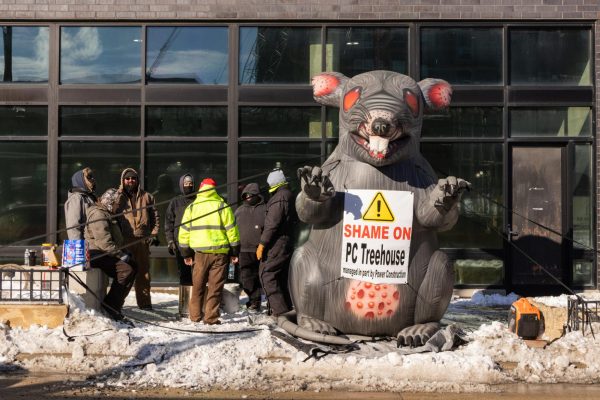Other Campus: Ruling won’t stop filesharing
Jul 1, 2005
(U-WIRE) GAINESVILLE, Fla. – The Supreme Court made a very fair decision when it limited the scope of American filesharing, but don’t think the ruling will make much of a difference.
The ruling says filesharing entities like Grokster may be liable for their users’ actions, because they “actively encourage” copyright infringement.
Piracy costs real money – nearly $1 billion for the music industry alone. We have no reason to doubt all the claims of loss by Big Media. But who’s going to stop now?
First, the Internet is too volatile a place to support regulation with any teeth. The disjointed nature of many filesharing programs makes it hard to discourage users from jacking in once in a while.
In fact, more than five million people used filesharing programs the day after the Court’s ruling, which is just as many as before the ruling, according to estimates from media-watchdog groups.
Get The Daily Illini in your inbox!
Technology is at least as daunting. Microsoft releases service packs to improve security on computers that run Windows. Most of those updates are chopped up and circumvented well before they are released.
Innovation should continue in the filesharing world no matter how illegal the practice. Video files, for instance, have become smaller, crisper and more secure than ever, especially since studios started cracking down.
And remember that the Supreme Court only has authority over organizations in the United States, while the Internet obviously is a worldwide phenomenon. The ruling does nothing for content housed outside the country.
CD sales haven’t fallen. Many sales records have been set in the years since swapping files became common practice. Losses, while tangible, may be overestimated, because they are only estimates.
What we like the least, though, is the massive advertising campaign run by Big Media to “persuade” us to see them as the victims, in a move eerily similar to old tactics used by tobacco firms.
Just like cigarette makers telling us there’s no proof smoking kills – hell, some ads said smoking was beneficial to health – the deluge of anti-sharing ads will make a few people angry, and most apathetic, to the cause.
We’ve actually received a pre-written “guest column” from an anti-sharing lobby group called Define the Line, asking us to publicize the adventures of “Hackrat” and the thousands of pirated CDs and movies in his possession. Guess this editorial wasn’t what they had in mind.
Big Media’s perception of the average pirate – teenage, introverted and either oblivious or a willing party to a vast underground conspiracy – is a disgusting reminder of how far influential industries can carry stereotypes.
There are 95-year-old great-grandparents who snag Ella Fitzgerald bootlegs while their descendents pilfer hacked copies of Doom III. The temptation of free stuff draws individuals of all sizes, shapes and colors, which should discourage groups like Define the Line from typecasting its targets.
We’re not advocating the sharing of copyrighted materials. But we don’t think it’s time yet to start the funeral procession.
Expect sharing to become easier, not harder.
Staff Editorial
Independent Florida Alligator (U. Florida)





